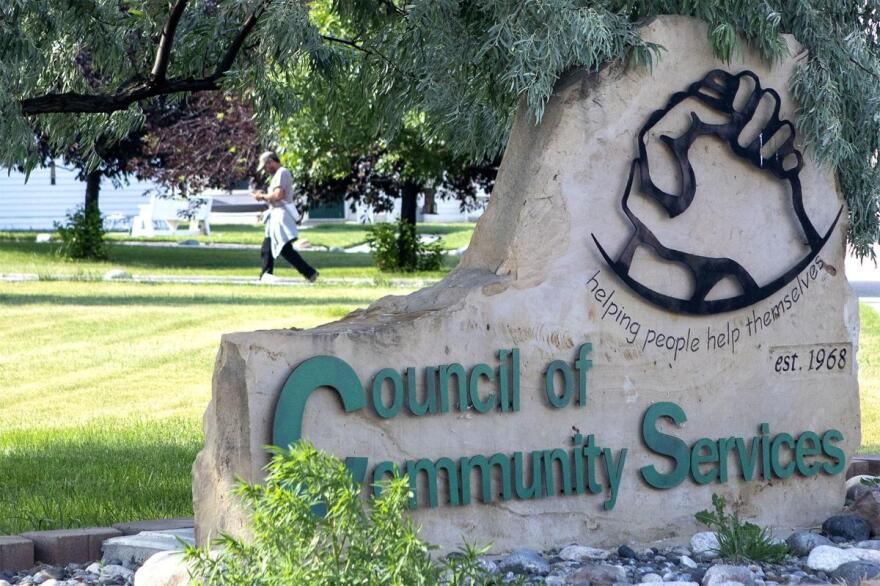During this year's Wyoming Legislative Session, lawmakers cut $430 million from the state's budget. That includes a $7.5 million cut from Wyoming Department of Health funds that go to communities across the state for mental health and substance abuse services.
In Gillette, those cuts have already led to the closure of a group home for residents with severe mental illnesses.
The Greenhouse Group Home in Gillette isn't well known. A lot of people in the community don't even know it exists. From the outside, you wouldn't know it houses up to six people with severe mental illnesses, and workers there give care and help those residents so they can become fully independent.
"We teach them how to plan meals, how to plan shopping lists, how to go shopping and find stuff, how to do their laundry, how to keep the room clean. And probably one of the biggest things we teach them over time is 'socialness' because these people lack social skills when they come in," said Karen Archer, who used to be the Greenhouse's assistant manager before it was forced to close this May.
The Greenhouse was funded through the Wyoming Department of Health. Campbell County Health received the grant and contracted with the local nonprofit, the Council of Community Services, to run the facility.
Originally the hospital and Council thought they could absorb a 20 percent cut or so. But Mikel Scott, the council's executive director, said it turned out to be much steeper than expected.
"No matter what we cut, or what we did, there was no way to meet that number," Scott said.
The department offered a reduced grant but she said they ultimately decided the Greenhouse's $400,000 budget couldn't take the hit.
"We can't reduce anything," Scott said. "Cutting the beds doesn't cut our cost at all. We still have to have just as many staff, we still have to pay for the facility maintenance, everything else."
There's a little article in the paper and people feel upset about it for a short time. But I think it's a known fact that Wyoming-the grasp that we have on mental health issues is not the best. So I don't know if I see things really getting a lot better, and I just hope they don't get a lot worse.
Karen Archer, the Greenhouse's assistant manager, said it was expensive to run because of the wrap-around care the facility provided.
In addition to helping residents learn how to live independently, staff are also making sure residents are getting to doctors' appointments, taking medication, teaching them how to apply for and keep jobs, and help them get housing for when their stay is over.
"They've got problems, and you're just trying to help them navigate that to seek solutions and to know that there are people they can ask for solutions," Archer said.
Employees say they are devastated to see the Greenhouse close and worry what will happen to people who need this service.
Housing programs manager Tracy Obert said it's especially heartbreaking when she's seen how good the Greenhouse can be for people who are often isolated in our communities. She has examples of people who have gone to college and people who have moved out into the community and held successful jobs.
Now, those people who could have been helped, may have to be treated at a place like the Wyoming Behavioral Institute or they might have to bounce from community to community, wherever they can find services or a place to stay, Obert said.
"Our homeless shelter has a 30 day policy," she said, "they'll use up those 30 days. They're going to go to Casper. They're going to use up their time in Casper, they're going to go to Cheyenne, they're going to go to Montana, they're going to go everywhere. And because they're shuffling around so much, they're not going to get the mental help that they need the medication and the physical help that they need."
Council Executive Director Mikel Scott said she wonders about the downstream effects this could have on the community.
"When folks are homeless, setting aside that it's just not good for people, and it's inhumane, but they cost taxpayers and our community thousands of dollars more when they're on the street. And they're having to use services, like the ER, and the jails and the homeless shelters, over and over and over," Scott said.
Lawmakers say budget cuts were necessary and know it's likely to have effects. But they are willing to wait and see exactly how communities are impacted.
That's what the Campbell County Commissioners also decided. They considered chipping in funding to keep the Greenhouse open, but in an already tight budget year, they decided to hold off for now.
But whatever happens, Scott said she hopes people don't forget about this issue in the long term.
"There's a little article in the paper and people feel upset about it for a short time. But I think it's a known fact that Wyoming-the grasp that we have on mental health issues is not the best. So I don't know if I see things really getting a lot better, and I just hope they don't get a lot worse," she said.
There could be federal assistance coming to the state that could help programs like this one. But that remains to be seen.
Meanwhile, lawmakers say it's time to re-evaluate the state's mental health care system and how it can be more sustainable.









